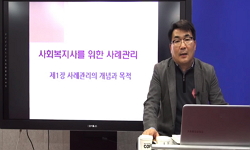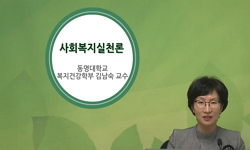본 연구는 사회복지사 보수교육의 권리성 문제와 보수교육 의무대상자의 문제 등에 대하여 살펴보고, 사회복지사의 전문성 향상을 위한 권리로서의 보수교육권 강화 방안을 모색해 보고자 ...
http://chineseinput.net/에서 pinyin(병음)방식으로 중국어를 변환할 수 있습니다.
변환된 중국어를 복사하여 사용하시면 됩니다.
- 中文 을 입력하시려면 zhongwen을 입력하시고 space를누르시면됩니다.
- 北京 을 입력하시려면 beijing을 입력하시고 space를 누르시면 됩니다.
https://www.riss.kr/link?id=A105599715
- 저자
- 발행기관
- 학술지명
- 권호사항
-
발행연도
2014
-
작성언어
-
- 주제어
-
KDC
338
-
등재정보
KCI등재
-
자료형태
학술저널
-
수록면
95-113(19쪽)
- 제공처
-
0
상세조회 -
0
다운로드
부가정보
국문 초록 (Abstract)
본 연구는 사회복지사 보수교육의 권리성 문제와 보수교육 의무대상자의 문제 등에 대하여 살펴보고, 사회복지사의 전문성 향상을 위한 권리로서의 보수교육권 강화 방안을 모색해 보고자 한다. 2008년도에 사회복지사업법 개정을 통하여 2009년부터 사회복지사 보수교육제도가 시행되었다. 자격증제도와 보수교육제도 개선을 위한 학계와 현장의 노력은 지금도 계속되고 있다. 사회복지사 자격증 취득 이후 체계적으로 전문성을 향상시키기 위한 제도로서의 사회복지사 보수교육을 권리적 측면에서 고찰하고, 보수교육 대상의 문제에 대하여 살펴볼 필요가있다. 사회복지사의 전문성 향상을 위하여 우선 첫째, 무엇보다도 보수교육을 받을 권리의 강화와 이를 위한 연구가 이루어져야 할 것이다. 사회복지사 보수교육의 권리성을 확립하기 위해서는 권리성 측면에 대한 사회복지계 내부의 논의와 합의의 확산이 필요할 것이다. 둘째, 사회 복지사보수교육 의무대상자 확대는 사회복지사의 보수교육권 강화를 위해서도 꼭 필요할 것이다. 사회복지사는 모두가 전문직으로서의 전문성을 향상시켜야할 권리와 의무를 가진다. 이를 보장하기 위하여 보수교육을 법제화한 것이다. 보수교육권의 강화는 사회복지사의 전문성의 질을 향상하고 발전시키기 위하여 필요할 것이다. 이러한 노력들은 우리 사회 내에서 사회복지사가 전문직으로 발전하고 사회적 위상을 공고히 하고자 하는 노력의 일환이며, 사회 내에서 다른 전문직의 도전과 경쟁에서 사회복지직의 지속적인 유지를 위해서도 필요한 노력일 것이다.
다국어 초록 (Multilingual Abstract)
This study reviewed from the perspective of credentialism the issue of the right and compulsory subject of social worker continuing education implemented from 2009 through revision of Social Welfare Services Act in 2008, and considered plans to streng...
This study reviewed from the perspective of credentialism the issue of the right and compulsory subject of social worker continuing education implemented from 2009 through revision of Social Welfare Services Act in 2008, and considered plans to strengthen the right to receive continuing education as a right for professionalism enhancement of social workers. For this purpose, first of all, the right of social workers to receive continuing education and subject of the continuing education were studied. The right of social workers to receive continuing education was reviewed focusing on legislation process of the continuing education statute, penalty clause, and the relation to Code of Ethics. Considering the legislation process of the continuing education statute that was voluntarily promoted, for professionalism enhancement of social workers, by the lead of social welfare community including Social Workers Association, the penalty clause that is restricted to imposing fine without punishment such as certificate deprivation in case of failure to complete the continuing education unlike other specialized jobs, and the social workers Code of Ethics that specifically requires effort to be put in to develop professionalism, this paper considered it reasonable to interpret the continuing education as a right that is reflected in the form of legislation of compulsory education to ensure an opportunity of specialized education to social workers and enhance their professionalism. Problems concerning the subject of social worker continuing education were examined with emphasis on the criteria defined in the Social Welfare Services Act, which specifies the subject of continuing education in the criteria of social welfare facility, social welfare foundation, and duties. However, the criteria are unclear for such social workers who work in facilities other than social welfare facilities and have differences depending on duties even in the same social welfare facility. Also, as part time (short term?) social workers in social welfare facilities are not included in the compulsory subject, the current compulsory subject fails to cover the whole social workers. Based on this analysis, the two following plans are suggested to strengthen the right of social workers to receive continuing education: First, the right aspect and goal of the continuing education should be emphasized. Through discussion and agreement within the social welfare community on the right aspect of the social worker continuing education, the right to receive continuing education should be confirmed and emphasized, and this should be emphasized through curriculum of continuing education. And, as for the goal of continuing education, consistent evaluation will be required on if social workers improved their special knowledge through continuing education, and if they applied the knowledge, techniques and attitude they obtained from the education to the field and eventually improved productivity and efficiency of the organization. Second, compulsory subject should be reformed. The criteria of compulsory subject of continuing education should be changed so that any social worker with the social worker certificate should be able to receive continuing education regardless of type of facility, duty, and permanent position or not. Expansion of the compulsory subject of continuing education will definitely be necessary for strengthening of the right of social workers to receive continuing education.
목차 (Table of Contents)
- Ⅰ. 서론
- Ⅱ. 보수교육의 권리성과 교육 대상
- Ⅲ. 결론 : 사회복지사 보수교육권 강화 방안
- Ⅰ. 서론
- Ⅱ. 보수교육의 권리성과 교육 대상
- Ⅲ. 결론 : 사회복지사 보수교육권 강화 방안
동일학술지(권/호) 다른 논문
-
- 사회복지법제학회
- 김윤나(Kim Yoon Na)
- 2014
- KCI등재
-
거주형 노인복지시설의 체질 전환을 위한 관련 법령 정비방안 : 거주노인의 인권·권리보장을 중심으로
- 사회복지법제학회
- 신복기(Shin, Bok-ki)
- 2014
- KCI등재
-
「사회복지사 등의 처우 및 지위 향상을 위한 법률」과 조례의 정합성 확보방안
- 사회복지법제학회
- 윤석진(Yoon, Seok-Jin)
- 2014
- KCI등재
-
- 사회복지법제학회
- 김영미(Kim, Young Mi)
- 2014
- KCI등재





 스콜라
스콜라






